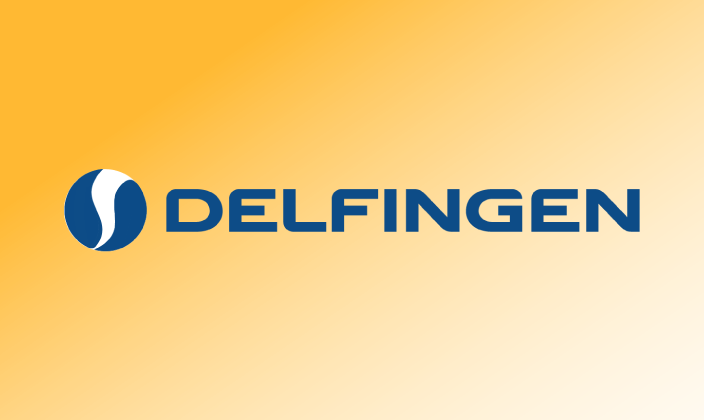Delfingen is an automotive equipment manufacturer that supplies products like fluid transfer systems, technical tubing, and wire and cable protection to carmakers, automotive parts suppliers, and industrial markets. Founded in 1954 and headquartered in Anteuil, France, the company has offices across the world, including Europe, North America, South America, Africa, and Asia. In 2022, Delfingen brought in €420 million in revenue.
Early adopter moving to the cloud and driving innovation globally
When Marc Lemke joined Delfingen 25 years ago, the company had a team of 600 workers. Over the ensuing years, the company has grown steadily both organically and through acquisitions. Today, Delfingen has 4,000 employees.
As a company that has always been laser-focused on keeping IT costs in check, Delfingen was an early adopter of open source products, including OpenOffice and an open source email server and client.
“It helped the company grow because we didn’t spend too much money on IT back then,” Lemke explains.
Delfingen knew it needed to improve its security stance. So, the company decided to move away from open source to more “professional software” and began looking to migrate some systems to the cloud. As the first step, they began eying an LDAP replacement.
“We wanted to move to the cloud, but we knew it would be a journey,” Lemke says. “Getting to the cloud with some sort of LDAP-as-a-service solution seemed like the smartest first step.”
Moving away from open source tools and on-premises infrastructure
In 2016, as Delfingen was moving to the cloud, Lemke and his team came across JumpCloud, a cloud directory service that enabled them to ditch LDAP while managing and protecting internal identities and passwords — the perfect solution to the company’s dilemma.
“Now, there’s no more LDAP,” Lemke continues. “We used to run replication every night of a local LDAP instance. All of this has been decommissioned, and we were able to move fully to the cloud.”
At the same time, Lemke and his team decided that moving to Google Workspace was a no-brainer since most employees had personal Gmail accounts, and the tools were already familiar.
“Google Workspace is very easy to use,” Lemke explains. “For us, it was a great move because there was almost no training needed since people already knew how to use Google products. We were quite happy with the functionality.”
“The big issue was making sure people were following the rules for passwords,” Lemke says. At a previous job, Lemke was managing user accounts; every Monday, people wouldn’t be able to connect to their accounts because they forgot their passwords over the weekend. As a result, Lemke and his team had to reset accounts every week — not the most efficient use of time.
Thanks to JumpCloud, Lemke could rest comfortably knowing that Delfingen could enhance password security without suffering that same fate.
“We didn’t want to make a special server that held sensitive data and needed to be managed internally,” he continues. “The idea was to ensure that people had strong passwords and renewed them every month. We didn’t want their passwords to be something like 1234, and we didn’t want them to forget their passwords and need help resetting them.”
Shoring up its IT footprint with Google and JumpCloud
Fast-forward to today and Delfingen’s decision to use Google and JumpCloud has made their migration to the cloud a breeze. And that decision has delivered even better results over time thanks to the recently announced Google-JumpCloud partnership.
Managing diverse infrastructure from one pane of glass
While Delfingen is primarily in the cloud today, the company still maintains an on-prem Linux server where its in-house ERP system lives. Roughly 68% of employees use Chromebooks to do their jobs while the rest of the team relies on Microsoft desktops and laptops. Thanks to JumpCloud, it’s easy for the IT team to manage all of these devices from one central location.
Integration made easy after acquisitions
Over the years, Delfingen has acquired several companies. For example, they bought assets from Schlemmer in 2020 and purchased AHN Chem Co. Ldt and Reiku GmbH in 2023.
When it comes to any acquisition, IT teams need to figure out how to consolidate tools and build an efficient computing ecosystem, and Lemke is proud of what his team has accomplished on this front.
“With each acquisition, we make an effort to integrate systems,” Lemke says. “Even as a 70-year-old company, we operate like a startup in terms of IT with cutting-edge technology.”
With JumpCloud centralizing identity and device management, such IT consolidation has been smooth and impactful.
Business as usual during the pandemic
The company “grew up quite a lot” since moving to the cloud, Lemke says, nodding to their recent acquisition spree. Since the team had already moved to the cloud and had JumpCloud to manage devices and identities, Delfingen’s business wasn’t interrupted at all during the pandemic.
“When COVID happened, there was no issue for us. My boss said, ‘Marc has been boring us for years, and we just discovered the benefits of his vision,’” Lemke adds with a laugh.
Future-proofing their IT operations
Since 2016, every new software solution Delfingen has invested in has been a SaaS product. In 2020, the company decided to lift-and-shift the vast majority of its on-prem software to the cloud.
“Today, all of our development is 100% in containers in Kubernetes,” Lemke says. “The idea was more choice and more security.”
With its computing infrastructure in the cloud and JumpCloud at the heart of it, Lemke is confident that Delfingen has future-proofed its technology needs.
“I’m sleeping like a baby — no questions about it,” he concludes.
Learn more about JumpCloud
JumpCloud changes the way IT administrators manage their organizations by providing a comprehensive and flexible cloud directory platform. From one pane of glass, manage user identities and resource access, secure Mac, Windows, and Linux devices, and get a full view of your environment.
Get started with JumpCloud today.
